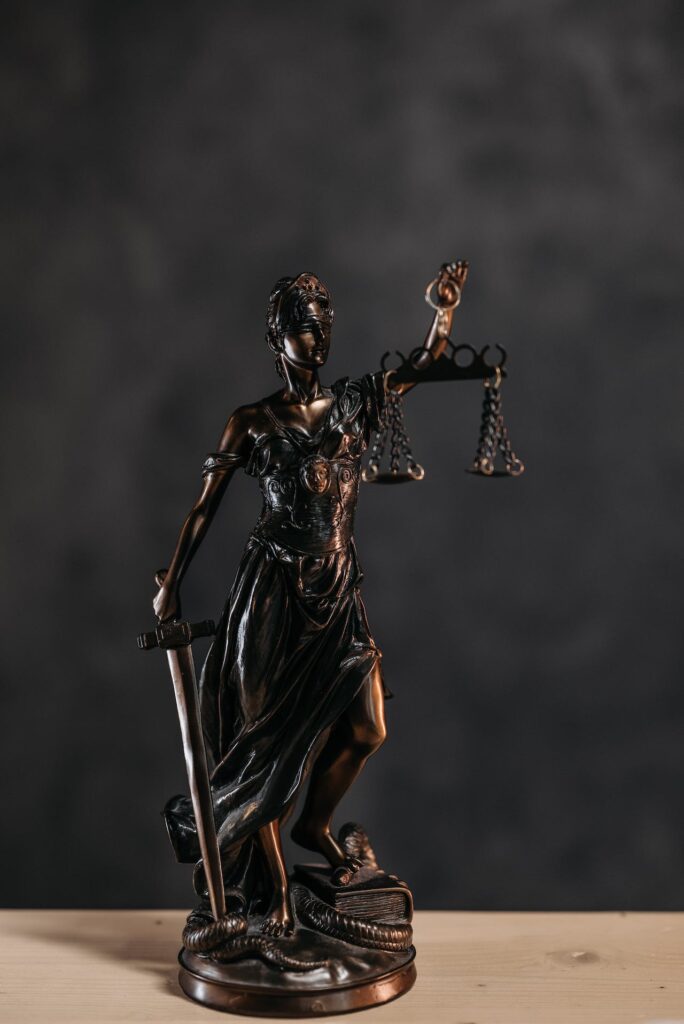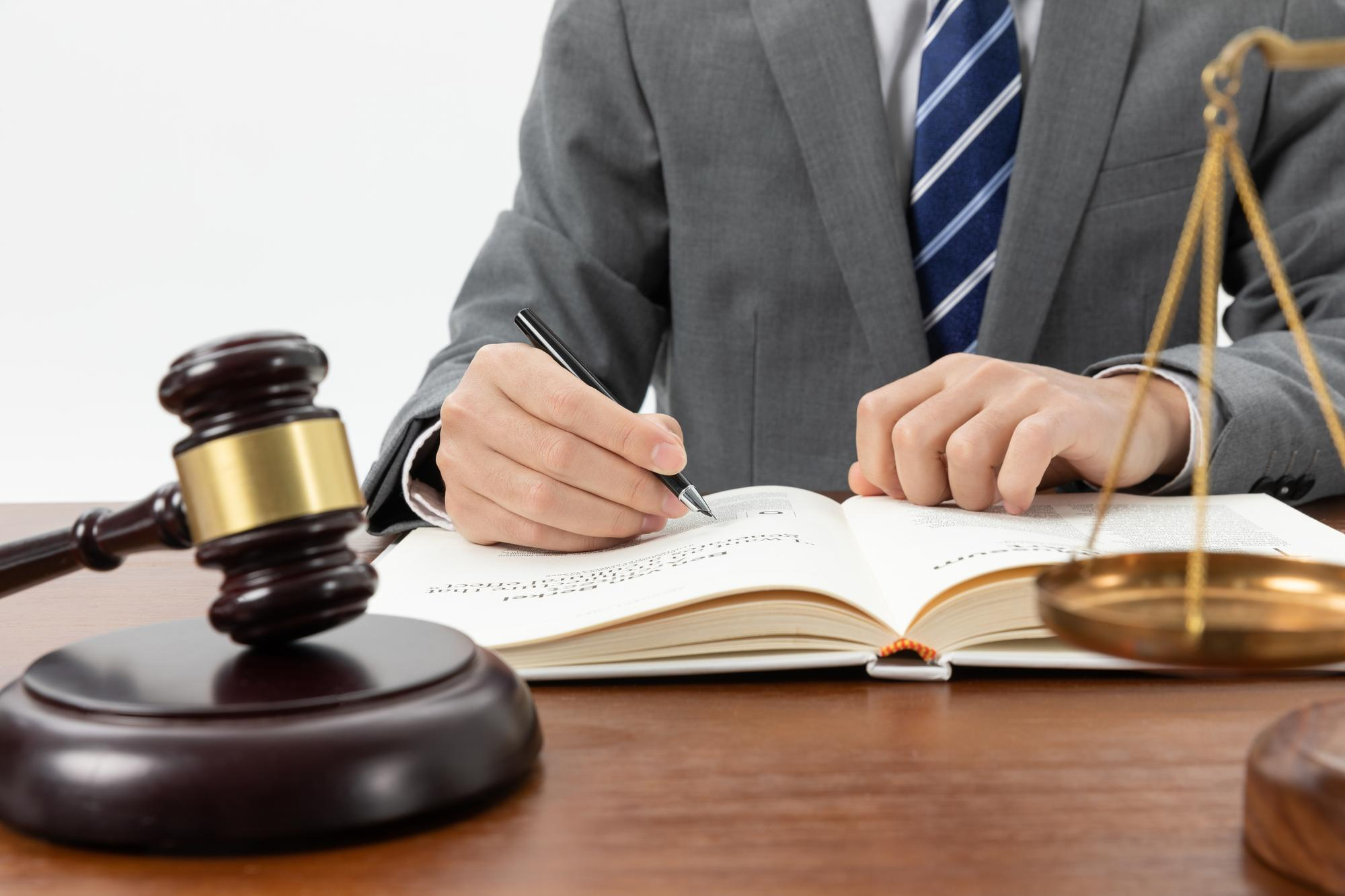What Does a CA Personal Injury Lawyer Do for Your Claim?
Get the quick rundown in the video below on what a California personal injury lawyer does in fighting for your personal injury claims during your case and why you need a lawyer to represent your best interests.
Your Personal Injury Lawyer's Responsibilities in Representing Your Case
Personal injury lawyers play a pivotal role in representing your personal injury lawsuit. Any person harmed by others’ carelessness or misconduct must classify these harms in terms of types of damages and impact to the victim’s life. That is where your personal injury attorney comes in.
Personal injury lawyers are more than mere advisors. They are committed advocates dedicated to upholding the rights of their clients. When considering the responsibilities of a personal injury lawyer, it’s essential to recognize the breadth and depth of their role. It goes far beyond general legal guidance and extends to uncover all of the intricate circumstances involved as they pertain to obtaining the maximum compensation for damages and harm done as a result of the event.
What Is a Personal Injury?
When we talk about personal injury, we’re referring to any harm caused to an individual’s body or mind. It often happens because of someone else’s negligence or intentional actions. This concept is broad and encompasses various types of incidents. Each type has its unique complexities. Recognizing the nature and scope of personal injuries is crucial. It directly influences the legal approach. It also determines the kind of expertise required from a personal injury lawyer.
Types of Personal Injuries:
Car Accidents: Injuries resulting from vehicle collisions, often involving complex insurance and liability issues.
- Slips and Falls: These cases are common in public or private properties. They can involve negligence in maintaining safe premises.
- Workplace Incidents: Injuries occurring in the workplace, which may involve workers’ compensation and employer liability.
- Medical Malpractice: Medical professionals fail to provide adequate care in some cases. This results in harm to patients.

What to Expect
During your first meeting with a personal injury lawyer, you will discuss your case. This meeting is a critical step. You’ll detail the incident leading to your injury. This includes the accident’s circumstances, contributing factors, and its impact on your life. It’s important to bring any relevant documentation. This includes medical reports and photos of the injury or accident scene. It also includes police reports and insurance communications. These will help the lawyer understand your case. They will also help the lawyer develop a strategic approach.
The consultation also serves as an opportunity to assess the lawyer’s expertise. It’s also a chance to evaluate their approach to handling cases like yours. Discuss their experience, strategies for case management, negotiation, and courtroom tactics. Understanding the potential outcomes of your case is crucial. The lawyer’s informed perspective forms the basis for these insights. Additionally, establish clear communication lines. Understand the fee structure. It’s usually a contingency basis. You only pay fees if you win. This first meeting is more than just gathering facts. It’s the start of a professional relationship. It lays the groundwork for your legal journey. It also helps you pursue justice and compensation.
Primary Personal Injury Lawyer Responsibilities
Client Advocacy
A personal injury lawyer’s main responsibility is to be a strong advocate. They stand up for the rights of their clients. They ensure that they hear their voices and represent their interests vigorously. This is especially true in challenging negotiations or court.
Legal Strategy and Case Management
Personal injury lawyers develop and manage legal strategies tailored to each unique case. This requires a thorough understanding of personal injury law. Lawyers apply this expertise to effectively benefit their clients.
Investigation and Evidence Gathering
Integral to their role is conducting thorough investigations into the incident. They meticulously collect and analyze evidence, including medical records and eyewitness testimonies. They also gather other pertinent information to construct a strong case foundation.
Negotiations with Insurance Companies
Personal injury lawyers are known for their negotiation skills. They often negotiate directly with insurance companies. They navigate the complex insurance claims landscape to secure fair settlements. This ensures their clients get just compensation for their injuries and losses.
A personal injury lawyer’s main responsibility is to be a strong advocate. They stand up for the rights of their clients. They ensure that they hear their voices and represent their interests vigorously. This is especially true in challenging negotiations or court.
Courtroom Representation
When settlements are unattainable, personal injury lawyers represent their clients in court. They provide comprehensive legal representation. They advocate for their clients’ interests to achieve favorable outcomes.
Ongoing Client Support
Throughout the legal process, personal injury lawyers offer continuous support to their clients. They keep clients informed about their case’s progress. They guide them through legal decisions and provide reassurance during challenging times.
In-Depth Understanding of Personal Injury Cases
Personal injury lawyers have knowledge and experience in handling various case types. This includes car accidents and workplace injuries. They also handle medical malpractice and slip-and-fall incidents. They understand each case type’s nuances. This ensures they can provide tailored legal advice and representation. This includes a keen awareness of the specific laws and regulations that apply to different personal injury cases. This is particularly important in jurisdictions like Culver City and across California.
Expertise in Legal Procedures and Documentation
These legal experts navigate the complex procedural landscape of personal injury cases. They handle all legal paperwork, filings, and correspondence with other parties involved in the case. They ensure meticulous adherence to all legal procedures. This safeguards their clients’ interests and enhances the chances of a successful outcome.
Case Evaluation and Investigation
A personal injury lawyer’s responsibility is to test and investigate your case. They will review all aspects of your incident. They will gather evidence and build a strong case to support your claim. This process involves collecting medical records and eyewitness statements. If necessary, we may also get expert testimonies to establish the extent of your injuries. We will also use them to establish the other party’s liability.
1. Detailed Incident Review:
- Understanding the Incident: The lawyer delves into the specifics of the incident. They analyze the circumstances and context in which the injury occurred.
- Identifying Contributing Factors: Personal injury lawyers must identify factors or negligence causing the injury.
2. Evidence Collection:
- Gathering Medical Records: Medical records are crucial. They provide a comprehensive view of the injuries sustained. They also show the treatment received. They show the potential long-term impact on the client’s health.
- Eyewitness Statements: Collecting statements from witnesses offers valuable insights and perspectives. These can corroborate the client’s account of the incident.
- Photographic and Video Evidence: Visual evidence from the scene can provide compelling support for the claim, if available.
3. Expert Testimonies:
- Consulting Medical Experts: If you have significant injuries, consulting medical experts can help you understand the full extent of the injuries. It can also help you understand the future implications of the injuries.
- Accident Reconstruction Specialists: In complex cases, like severe car accidents, the authorities may bring in reconstruction experts. They provide a clearer picture of how the incident occurred.
4. Establishing Liability:
- Determining Fault: Personal injury lawyers must establish the liability of the other party.
- Legal Precedents and Laws: The lawyer will also review relevant legal precedents and laws. These can influence the outcome of the case.
Understanding Legal Representation and Advocacy
In personal injury law, your lawyer’s role goes beyond legal advice. They provide comprehensive representation and staunch advocacy in various legal settings. Your personal injury lawyer is your voice in all legal proceedings. They represent you in courtrooms and at negotiation tables. They engage with insurance companies and other parties involved. They have the responsibility for this task. They often navigate complex negotiations to safeguard your interests. They’re experts in arguing your case. They’re also experts in strategically presenting your situation.
They maximize the compensation you receive for your injuries and other losses. This representation is crucial. It involves a deep understanding of legal nuances and the ability to argue on your behalf. Your lawyer’s commitment to protecting your rights and ensuring justice can impact your case’s outcome. It highlights the importance of skilled legal representation in personal injury claims.

Communication and Client Support
This support is crucial. It helps clients navigate their case with confidence and clarity. Your lawyer should be approachable and empathetic. They should ensure you feel heard and understood. They should also keep you informed about any developments or changes in your case. They ensure that you are never left in the dark. This level of client support and communication is vital. It helps build a strong, trusting relationship between you and your lawyer. It contributes to the effectiveness of your case’s handling. It also affects your satisfaction with the legal process.
Navigating the Legal Process with a Personal Injury Lawyer
Understanding the legal process in a personal injury case is crucial. Knowing the personal injury lawyer responsibilities at each stage can ease the journey. The process is multifaceted. It involves several key stages. Each stage requires the expertise and guidance of a skilled personal injury lawyer.
1. Filing a Lawsuit
- Initiating the Legal Process: Your personal injury lawyer takes the first step by filing a lawsuit on your behalf. This marks the official start of your legal claim.
- Drafting and Submission: The lawyer prepares and submits necessary legal documents. These documents outline your case against the defendant..
2. Discovery Phase
- Information Gathering: A critical phase where both parties exchange information. Your lawyer handles collecting evidence, organizing witness testimonies, and preparing for depositions.
- Building a Strong Case: The personal injury lawyer assembles a case. It represents your situation and the impact of your injuries.
3. Negotiations and Settlements
- Negotiating with Opposing Parties: Personal injury lawyers must negotiate with the defendant’s party or insurance companies. They do this to reach a fair settlement.
- Settlement Discussions: The lawyer evaluates settlement offers, advising you on the best course of action.
4. Trial Preparation and Representation
- Courtroom Strategy:If the case goes to trial, your lawyer prepares a comprehensive strategy. They present your case in court.
- Advocacy and Representation: They advocate on your behalf, ensuring that your story is heard and your rights are protected.
Throughout these stages, your personal injury lawyer handles legal tasks. They also encompass providing you with clarity and understanding of each step. They handle the legal complexities. This allows you to focus on your recovery and well-being. A personal injury lawyer takes a comprehensive approach. This ensures you are well-represented and supported throughout your case’s legal process.
Financial Aspects: Fees and Costs
In personal injury law, it’s critical to understand the financial aspects. It’s especially important to understand your lawyer’s fees. Personal injury lawyers have a key responsibility. They ensure clients are fully informed about the costs associated with their case. Personal injury lawyers commonly work on a contingency fee basis in California. They do the same in many other states. This system significantly differs from traditional hourly billing and impacts your financial obligations.
1. Key Elements of the Contingency Fee Structure
- Payment Conditional on Success: Personal injury lawyers work on a contingency fee basis. They get paid only if they win your case or achieve a settlement. This aligns their financial incentives with your success.
- Percentage-Based Fees: Typically, the lawyer’s fee is a set percentage of the settlement or court award. This percentage should be clearly defined in your agreement to avoid any confusion.
2. Advantages of Contingency Fees
- No Initial Outlay: A major advantage is the absence of upfront costs. It eases the financial strain on clients at the beginning of their legal journey.
- Motivation to Maximize Compensation: Personal injury lawyers’ fees depend on the case’s outcome. So, they are often motivated to secure the best possible settlement or award.
3. Transparent Discussion on Costs
- Understanding All Costs: It’s crucial to have a transparent conversation with your lawyer. Discuss all potential costs. This includes their fee percentage and any extra expenses that may arise during the case.
- Preventing Future Surprises: Clear communication about costs from the start helps prevent unexpected financial surprises later in the case.
A personal injury lawyer must navigate these financial aspects. It’s fundamental to their responsibilities. Understand the contingency fee structure. Discuss all costs with your lawyer. This will help you make well-informed decisions. You can also prepare for the financial aspects of your personal injury case. This knowledge empowers you to manage your case effectively. You have a clear understanding of the financial commitments involved.

Key Aspects of Settlement Negotiations
- Assessment of Damages: Your lawyer will calculate the total impact of your injury. This includes medical expenses, lost wages, and other related damages. We ensure that we do not overlook any aspect of your suffering. This is a comprehensive assessment.
- Consideration of Injury Severity: The severity of your injury and its long-term implications are critical factors in these negotiations. Your lawyer will argue for a settlement. It will consider both immediate and future needs.
- Maximizing Compensation: A personal injury lawyer’s main responsibility is to maximize the compensation you receive. This involves skilled negotiation tactics. It also requires a deep understanding of personal injury law to advocate on your behalf.
What If Your Case Goes to Trial?
When a personal injury case fails to settle, it goes to trial. At this point, your personal injury lawyer’s role and responsibilities become very important. This transition to trial necessitates a shift in strategy and preparation. Your lawyer will prepare your case for court. This preparation involves organizing all pertinent evidence, including medical records and eyewitness testimonies. Then, you construct a compelling narrative that presents your side of the story. Your lawyer will focus on developing a strong trial strategy. This includes everything from the opening statement to the examination of witnesses. It also includes closing arguments. A key part of the trial will be to establish the negligence of the other party. This will demonstrate how their actions or inactions directly led to your injury.
During the trial, your lawyer’s role expands to being your staunch advocate. They protect your rights and ensure that your voice is heard in the courtroom. They will expertly handle all legal procedures. They will present your case clearly and effectively to the court. The lawyer is dedicated to achieving a favorable verdict. They aim to secure fair compensation for the physical, emotional, and financial hardships. You have endured them due to your injury. A skilled personal injury lawyer can help you navigate the complexities of the trial process. Their expertise, advocacy, and thorough preparation are essential. They strive for the best possible outcome in your personal injury case.
How Do I Find a Personal Injury Lawyer Near Me?
To find a local personal injury lawyer, use online directories and legal websites. Search for specialized lawyers in your area. Research each lawyer by reading reviews. Examine their credentials, such as education, experience, and specialization. Schedule initial consultations with potential lawyers. Discuss your case and assess their approach and compatibility with your needs. These steps will help you make an informed decision about the right lawyer for your case.
Choosing the Right Personal Injury Lawyer
Choose a personal injury lawyer based on their experience with similar cases. Consider their success rate, communication style, and fee structure. Look for a lawyer with a proven track record in personal injury law. They should have clear and consistent communication. Also, they should have a fee arrangement that is transparent and understandable. It’s important to choose a lawyer who makes you feel comfortable. They should also show a commitment to achieving the best outcome for your case.
For more information, check our legal services for disability claims.
Partnering with Your Personal Injury Lawyer for Success
The success of a personal injury case depends on your lawyer’s expertise. It also depends on their experience and dedication. Knowing the personal injury lawyer responsibilities in advance can make all the difference. Selecting the right personal injury lawyer is a decision. It can impact the outcome of your case. It’s essential to choose a legal partner who has the necessary legal skills. It’s also crucial to choose a partner who deeply cares about your case. In your legal journey, a lawyer who understands your specific needs can serve as a powerful ally. They must be ready to fight for your rights. This partnership is about more than just navigating legal complexities. It’s about having someone who advocates on your behalf. They strive to achieve the best possible outcome for you. A diligent personal injury lawyer will handle your case with great care and attention.
If you’re seeking a clear understanding of personal injury lawyer responsibilities, Mayberry Law is here to guide you. Contact us for expert advice and ensure your rights are fully represented.
Recent Post


California Auto Accident Attorney Duties in Relation to the Client Victim

Share this Post!
Reach out to our dedicated SSDI lawyers – Exclusive legal support for our LA community.
Stand strong with a trusted Los Angeles disability lawyer by your side. Our experienced attorneys are ready to help you receive the disability benefits you deserve. If you need legal representation or other legal assistance for your disability claim, don’t hesitate to contact Mayberry Law today.


